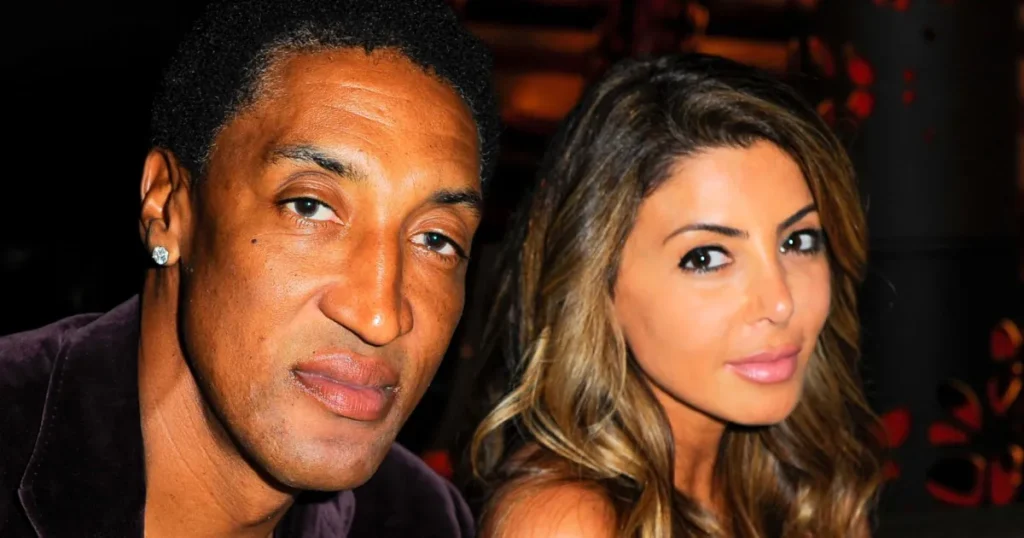Larsa Pippen Opens Up About Coparenting Journey with Ex-Husband Scottie Pippen
In a candid conversation on the “I Do, Part 2” podcast, Larsa Pippen, the 51-year-old former Real Housewives of Miami star, shared intimate details about her coparenting relationship with ex-husband and NBA legend Scottie Pippen. Their journey hasn’t been without challenges, but it demonstrates how separated parents can evolve their relationship for the benefit of their children. The former couple, who were married for nearly two decades before finalizing their divorce in December 2021, continue to navigate the complex dynamics of raising their four children: Scotty Jr. (24), Preston (23), Justin (20), and Sophia (16). Larsa’s revelations offer a glimpse into the realities many divorced parents face when trying to maintain healthy family connections despite personal differences.
During the podcast episode, Larsa reflected on the competitive nature of their parenting dynamic, noting, “Scottie and I fight over the kids… he shows them so much love, I show them so much love.” Rather than portraying this as entirely negative, she reframed it as a blessing in disguise. She illustrated this perspective with a story about their daughter Sophia, who became upset when her holiday plans changed from spending Thanksgiving with Larsa in Miami to joining Scottie in Arkansas to visit his family. Despite her own disappointment, Larsa encouraged her daughter to embrace the opportunity, telling her, “It’s okay, go to Arkansas with your dad, like he loves you so much, he’s so proud of it.” This moment of maternal sacrifice highlighted Larsa’s evolving understanding that children benefit from having two actively engaged parents, even when it means personal compromise.
The journey to this relatively stable coparenting relationship wasn’t smooth or quick. Larsa described their divorce process as seemingly endless, lamenting to Us Weekly that it felt like “the longest divorce in history” during the three years it took to finalize. The prolonged legal process undoubtedly added strain to an already emotionally charged situation, testing both parents’ commitment to maintaining civility for their children’s sake. When the divorce was finally settled in December 2021, their attorney David J. Glass announced that “all issues were resolved amicably” and emphasized that the former couple was “focusing on successfully coparenting their remaining minor children.” This public statement reflected their mutual commitment to prioritizing their children’s wellbeing above lingering personal grievances.
Despite reaching a place of relative peace in their coparenting relationship, Larsa openly acknowledged the sense of guilt she carries about her children not experiencing the traditional family structure she had hoped to provide. Having grown up in a two-parent household herself, she expressed regret that her children couldn’t have “a mom and dad in the same home.” This admission reveals the emotional complexity many divorced parents experience—balancing the practical reality of separation with idealized notions of family life. Her transparency about these feelings demonstrates how parents can simultaneously accept the end of a marriage while still honoring what they had originally envisioned for their family. This emotional honesty likely plays a role in the healthy dynamic they’ve developed post-divorce.
What emerges most clearly from Larsa’s reflections is how she and Scottie have managed to transform their relationship from romantic partners to cooperative parents. Despite the difficulties inherent in ending a nearly twenty-year marriage, they’ve created what she describes as “a great place” in their current dynamic. Her assertion that “we love each other, we’re always gonna support each other, we support our kids” points to a mature evolution in their connection, where mutual respect has replaced romantic attachment. This transition represents the ideal outcome for divorced parents—maintaining enough positive regard for one another to collaborate effectively in raising their children, while establishing healthy boundaries that allow each to move forward independently in other aspects of life.
The Pippen family’s story offers valuable insights for other families navigating the often turbulent waters of divorce and coparenting. Through their journey, we see how initial conflict can gradually transform into functional collaboration, how competition for children’s time can be reframed as a blessing of abundant parental love, and how personal disappointments can coexist with pride in creating a supportive extended family structure. While Larsa acknowledges the path hasn’t been perfect, her willingness to prioritize her children’s relationships with both parents demonstrates remarkable emotional maturity. Their evolving story reminds us that successful coparenting isn’t about achieving perfection or eliminating all conflict, but rather about consistently choosing to center children’s needs even when it requires personal sacrifice. As Larsa so eloquently put it when reflecting on her children having two parents who actively want time with them, “That’s like a good feeling, you know?”


